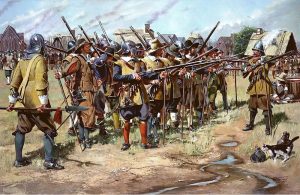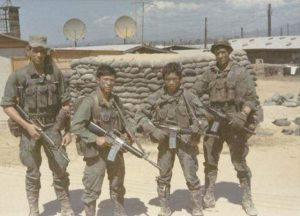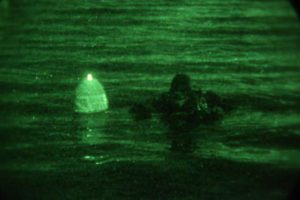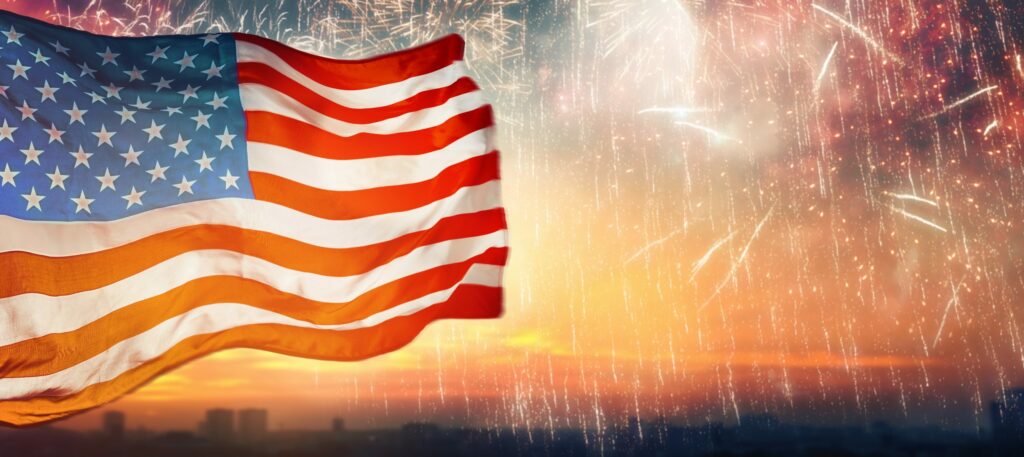
To say that Douglas MacArthur was a controversial general officer would be making a massive understatement. While still lauded by many, and despite being awarded the United States Medal of Honor – the highest medal for valor in combat that can be awarded in the United States – there remains a large (and increasing) number of people who are not simply uncertain of MacArthur’s ultimate competence, but who actively reject it.
While this might appear to be a simple debate that is best restricted to staid academics in dusty rooms, it most certainly is not…because, like it or not, Douglas MacArthur is the prototype for the modern general officer. Let me explain.
Before MacArthur, there were basically four kinds of officers. According to German General Kurt von Hammerstein-Equord, the first type were the dashing, energetic and brilliant commander, the sort you could easily see leading a valiant charge across Pelennor Fields…or at least to relieve Vienna. The second type was the lazy, but brilliant officer, who could out-think and out-plan virtually anyone they were likely to face in battle. Then, there was the stupid and lazy officer; you couldn’t give them any job requiring dynamic and energetic thought, but they were useful in positions that weren’t critical, but that required an officer to be in command. But then…there was the fourth type: the officer who was stupid, but energetic.
That would be where Douglas MacArthur enters the picture.
An “Army Brat” (MacArthur’s father, Arthur MacArthur, Jr. had been a hero of the American Civil War, on the Union side, and had been the Military Governor of the Philippines from 1900-1901), had carefully stage-managed his career in the Army (stage managed by the ‘helicopter parenting’ of his mother). While performing decently as a battalion commander in the First World War, MacArthur spent the remainder of the “interwar period” alternating between acting as the Army’s spokesman, learning how the (comparatively) new technologies of radio and film could present the Army in a positive light (as well as burnishing his own personal image) to a public that had been exhausted by the “War To End All Wars”.
At the end of 1937, MacArthur “technically” retired from the United States Army, having already been named as Field Marshal of the Philippine Army. Although the Philippines was still technically a colonial territory of the United States, it had been decided to begin creating a Filipino armed forces establishment as a result of the 1934 Tydings-McDuffie Act, declaring that the Philippines would become fully independent on July 4, 1946. Also factoring into MacArthur’s appointment, were the rising tensions with Japan in the Pacific as the Interwar Period progressed.
MacArthur was recalled to active duty by the US Army on 26 July 1941, as a major general (and was promoted to lieutenant general the next day) and appointed as commanding general of United States Army Forces in the Far East (USAFFE). The results were…“not optimal” is probably the most polite term that can be used.
MacArthur was awarded the Medal of Honor in the aftermath of the disaster in the Philippines not because of his performance, but in spite of it: by early 1942, the United States was, to put it bluntly, getting its ass handed to it by a nation that US leaders and media organs frequently dismissed as “little yellow monkeys”. In that environment, the United States needed as many heroes as it could scrape together. Admiral Kimmel and General Short – the Navy and Army commanders, respectively during the Pearl Harbor attack – were already under investigation by their armed services, as well as by Congress, and the military did not need to disgrace someone who had been the face of the Army barely ten years before. Thus, MacArthur remained in charge.
Aided by the virtually bipolar staff he had assembled, one that vacillated between simpering toadying and rock-solid (if rather uninspired) brilliance, MacArthur was able to conduct a reasonably competent, if very uninspiring, campaign to march across the Pacific to liberate the Philippines from the stunning savagery of the Japanese occupation of the archipelago. Further feeding his narcissistic tendencies, after the surrender of Japan, MacArthur was appointed Supreme Commander for the Allied Powers (SCAP) and given command of all Allied Forces in Japan…In effect, he was made an Imperial Viceroy in all but name. More than that, Japan – previously a major world state – was essentially reduced to the status of being his personal plaything, to do with as he willed.
As part of his role as SCAP, one of MacArthur’s major functions was to be placed in charge of overseeing the defense of the newly liberated South Korean republic. Of course, the forces of Kim Il Sung’s North Korea – armed, equipped and trained by the Soviet Union – stormed across the border defined by the 38th Parallel on 25 June 1950. In a disturbingly similar repeat to what had happened in the Philippines some nine years before, South Korean forces – badly equipped and laughably under-trained – were swiftly overrun and destroyed, and the survivors – along with the equally poorly trained and equipped US advisors and troops sent to their immediate aid – rapidly pushed back into a tiny, Dunkirk-like perimeter centered on the port city of Pusan.
Then, with reinforcements beginning to arrive from the United States, as well as many member-states of the United Nations, MacArthur made the single gutsiest move of his entire career, by launching a breakout from the Pusan Perimeter, in direct concert with an amphibious assault at the port of Inchon, near the South Korean capital of Seoul well to the north, near the 38th Parallel. This caused the near-immediate collapse of the North Korean army, sending Kim’s forces into headlong retreat, all the way to the Yalu River.
Newly-Communist China (the Chinese Civil War had ended decisively in 1949) – not a combatant at this point – pointedly warned the US and UN leaders in early October of 1950 not to advance to the Yalu, as it would not tolerate such a massive armed force on its border. Advised (incompetently) by MacArthur, President Harry S. Truman decided that the Chinese were bluffing, and ordered his general’s offensive to continue.
The Chinese, however, were not bluffing.
The US-led UN forces were shattered and driven back below the 38th Parallel line. Entire regiments, brigades and divisions were shattered, if not completely annihilated; the 1st Marine Division (USMC) was specifically targeted for destruction (a decision that went rather badly…for the Chinese), but was able to successfully escape by sea evacuation. United Nations – and United States – forces were so badly beaten in this offensive, no serious attempt was ever made to recross the 38th Parallel in strength for the remainder of the war’s active phase. In fact, the Korean War has never ended; a ceasefire agreement was reached in 1953, and the conflict has been frozen in place ever since.
MacArthur’s response to the Chinese counter-attack was, to be frank, psychotically hysterical: MacArthur demanded an immediate wave of attacks using atomic bombs against targets throughout China…At this point, Truman had had enough, and recalled MacArthur to the United States, and into forcible retirement.
So – What was the point of the foregoing narrative?
The attitudes both of MacArthur, but also of the establishment that allowed him nearly free rein for almost five decades, despite extremely, if not catastrophically, substandard performance are still alive and well within the United States Armed Forces. As pointed out by authors Thomas Ricks in his book “The Generals”, and James Dunnigan and Albert Nofi in their book “Shooting Blanks: War Making that Doesn’t Work”, military leaders – particularly in the United States – are no longer “leaders”, as such, but more “managers”.
While this is certainly not a criticism in the world of civilian business, it is catastrophic in the military world. MacArthur was a reasonably good manager; however, his deep-seated narcissism made him an absolute disaster as a military leader.
There are very few – if any – currently serving general (or, “flag”) officers in the United States Armed Forces who can be confidently identified as “leaders”, much less “combat leaders”. With the world in the state that it is in, and the threats the United States is facing – both internally and externally – the time for “military managers” is long past. But, there is essentially no way, short of some miracle, for this problem to be fixed, short of all-out war.
And we’ve been down the “sudden, all-out war” path before – one would think that we would have learned our lesson, after the last “on the job training” exercise that we call “World War 2”, a war that cost the United States over a million casualties.
But, apparently not.
“Thank You For Your Service” is a nice sentiment, but it is a poor substitute for endemically poor military leadership, in a country that supposedly prides itself in its civilian control over the military…especially when the children of the Reader are the first ones lined up to pay the price.
ADDITIONAL RESOURCES
Fighting For MacArthur, by John Gordon
The Generals, by Thomas Ricks
Shooting Blanks: War Making that Doesn’t Work, by James F. Dunnigan and Albert A. Nofi








